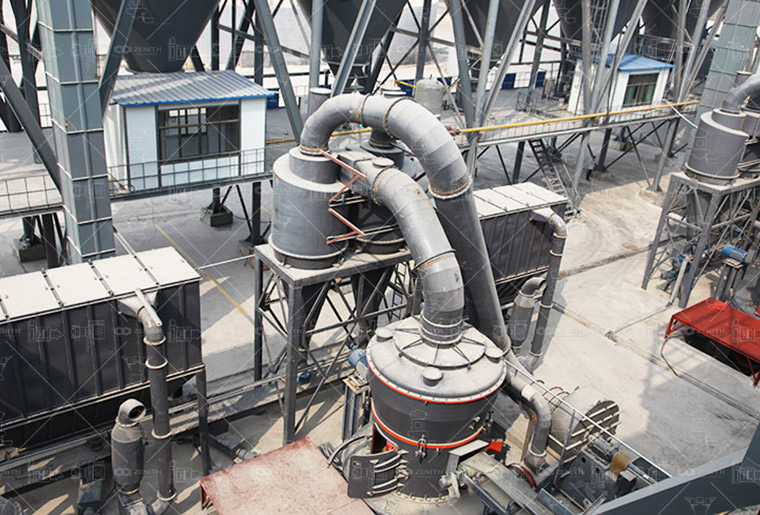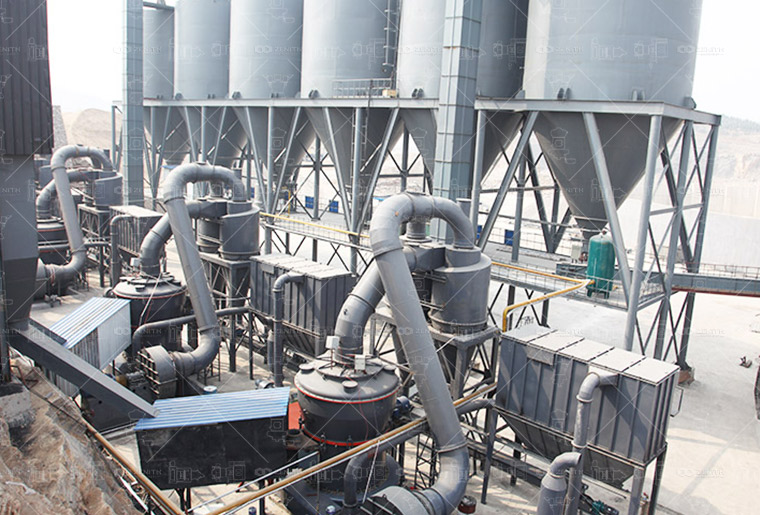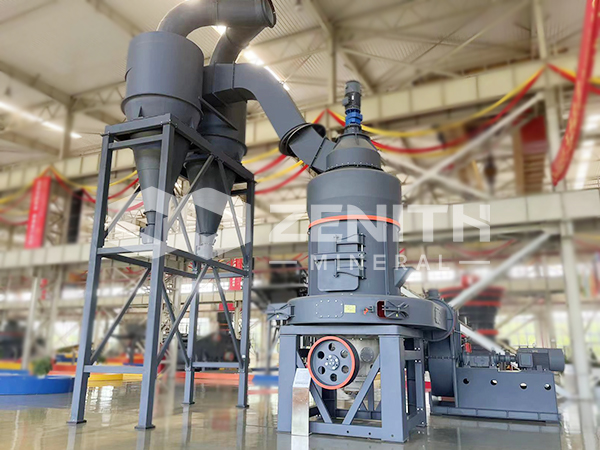Selection of limestone crusher for power plant desulfurization
2025-11-07 18:30:40
In the critical landscape of modern power generation, flue gas desulfurization (FGD) systems stand as essential guardians against sulfur dioxide emissions. The heart of an efficient wet limestone FGD system lies in the preparation of high-quality limestone powder, where the selection of appropriate grinding equipment directly impacts operational efficiency, cost-effectiveness, and environmental compliance. With decades of specialization in industrial powder processing, Zenith Machinery offers comprehensive solutions tailored to the demanding requirements of power plant desulfurization.

The fundamental requirement for FGD systems is consistent production of limestone powder within the 200-325 mesh range (approximately 45-75 microns). This specific fineness ensures optimal reactivity in the absorption tower while maintaining manageable grinding energy consumption. Among Zenith's diverse portfolio, the MTW European Trapezium Mill emerges as a particularly suitable candidate, delivering 3-22 T/H capacity with output fineness adjustable between 30-325 mesh. Its energy consumption demonstrates remarkable efficiency—operating at 60% lower power consumption compared to traditional ball mills of equivalent capacity. For power plants prioritizing operational economy without compromising performance, this represents significant long-term savings.
Beyond the MTW series, the LM Vertical Grinding Mill offers distinct advantages for large-scale power stations requiring continuous 24-hour operation. With capacity ranging from 3-340 T/H and automatic control systems enabling remote operation, this vertical roller mill minimizes labor costs while ensuring consistent product quality. The compact integrated design reduces footprint by approximately 50% compared to ball mill systems, making it ideal for space-constrained facilities. Furthermore, its sealed operation under negative pressure eliminates dust spillage, addressing critical environmental and worker safety concerns.
_1762511440149.jpg)
For power plants processing limestone with varying hardness characteristics, the MTM European Trapezium Mill provides robust performance honed through 30 years of practical application. Generating 80-400 mesh powder with stable operation even under fluctuating material conditions, this mill demonstrates exceptional adaptability. The modular impeller adjustment system enables quick fineness modifications without requiring complete shutdowns, a valuable feature for plants adjusting to changing limestone sources or emission requirements.
When project specifications demand ultra-fine limestone powder for advanced FGD systems, the LUM Ultrafine Vertical Grinding Mill and XZM Ultrafine Grinding Mill present sophisticated solutions. The LUM series achieves remarkable fineness between 325-2500 mesh while reducing energy consumption by 30-50% compared to conventional ultrafine mills. Its hydraulic adjustment system facilitates quick maintenance of vulnerable components, minimizing downtime—a critical consideration for power plants where continuous operation is paramount. Meanwhile, the XZM series offers unparalleled flexibility with fineness adjustable between 325-3250 mesh through variable frequency drive classification, ensuring precise control over final product specifications.

Initial crushing stages preceding fine grinding benefit from Zenith's HM Series Hammer Mills, which efficiently process raw limestone from 0-50mm down to 0-3mm coarse powder. This preparatory step ensures optimal feed size for subsequent fine grinding operations, enhancing overall system efficiency. The hammer mill's high grinding ratio and stable performance characteristics make it an invaluable component in complete limestone preparation circuits.
Selection criteria should extend beyond technical specifications to encompass comprehensive operational considerations. Zenith equipment carries ISO international quality system certification, European Union CE certification, and Customs Union CU-TR certification, providing assurance of quality and international compliance. With marketing networks covering over 180 countries and overseas offices in more than 30 nations, Zenith offers localized support and technical service—a crucial factor for power plants requiring reliable long-term equipment partnerships.
_1762511440152.jpg)
The working principles underlying Zenith's grinding technologies share common advantages for FGD applications. Each system operates under controlled positive and negative pressure conditions with integrated pulse dust collectors, ensuring compliance with stringent environmental standards. Material purity is maintained through careful design that minimizes iron contamination, preserving the chemical effectiveness of the limestone reagent. These features collectively contribute to reliable, environmentally responsible operation aligned with the core objectives of flue gas desulfurization systems.
Ultimately, the optimal limestone crusher and grinding system for power plant desulfurization balances multiple factors: required production capacity, target fineness, energy efficiency, space constraints, and operational flexibility. Zenith's diverse product range—from trapezium mills to vertical roller mills and ultrafine grinding systems—provides tailored solutions for various power plant scales and requirements. By leveraging advanced engineering and global operational experience, Zenith delivers grinding technologies that support cleaner power generation through effective emissions control.
Frequently Asked Questions
What is the optimal limestone powder fineness for flue gas desulfurization?
Most wet FGD systems require limestone powder between 200-325 mesh (45-75 microns). This fineness balances reactivity in the absorption tower with reasonable grinding energy consumption.
How does the energy consumption of Zenith mills compare to traditional ball mills?
Zenith's MTW and MTM European Trapezium Mills consume approximately 60% less energy than ball mills of equivalent capacity, while the LUM Ultrafine Vertical Mill reduces energy consumption by 30-50% compared to conventional ultrafine mills.
Can these grinding systems handle variations in limestone hardness?
Yes, Zenith mills are designed with material adaptability in mind. The MTM European Trapezium Mill particularly excels with fluctuating material conditions while maintaining stable operation and consistent product quality.
What maintenance requirements should power plants anticipate?
Maintenance needs vary by equipment. The LUM Ultrafine Vertical Mill features hydraulic adjustment systems for quick component replacement, while the XZM Ultrafine Mill's simple internal structure minimizes downtime. All Zenith equipment is designed for accessibility and serviceability.
Are these systems suitable for power plants with limited space?
Absolutely. The LM Vertical Grinding Mill requires approximately 50% less space than ball mill systems and can be arranged outdoors. The compact design of most Zenith mills addresses space constraints common in power plant environments.
What environmental protections are integrated into these grinding systems?
All Zenith mills operate under sealed conditions with negative pressure systems and integrated pulse dust collectors, preventing dust spillage and ensuring compliance with international environmental standards.
How quickly can fineness adjustments be made during operation?
Zenith's trapezium mills feature modular impeller adjustment devices that allow fineness changes without complete shutdowns. The XZM Ultrafine Mill offers particularly quick adjustments through VFD-controlled classification rotor speed modification.









